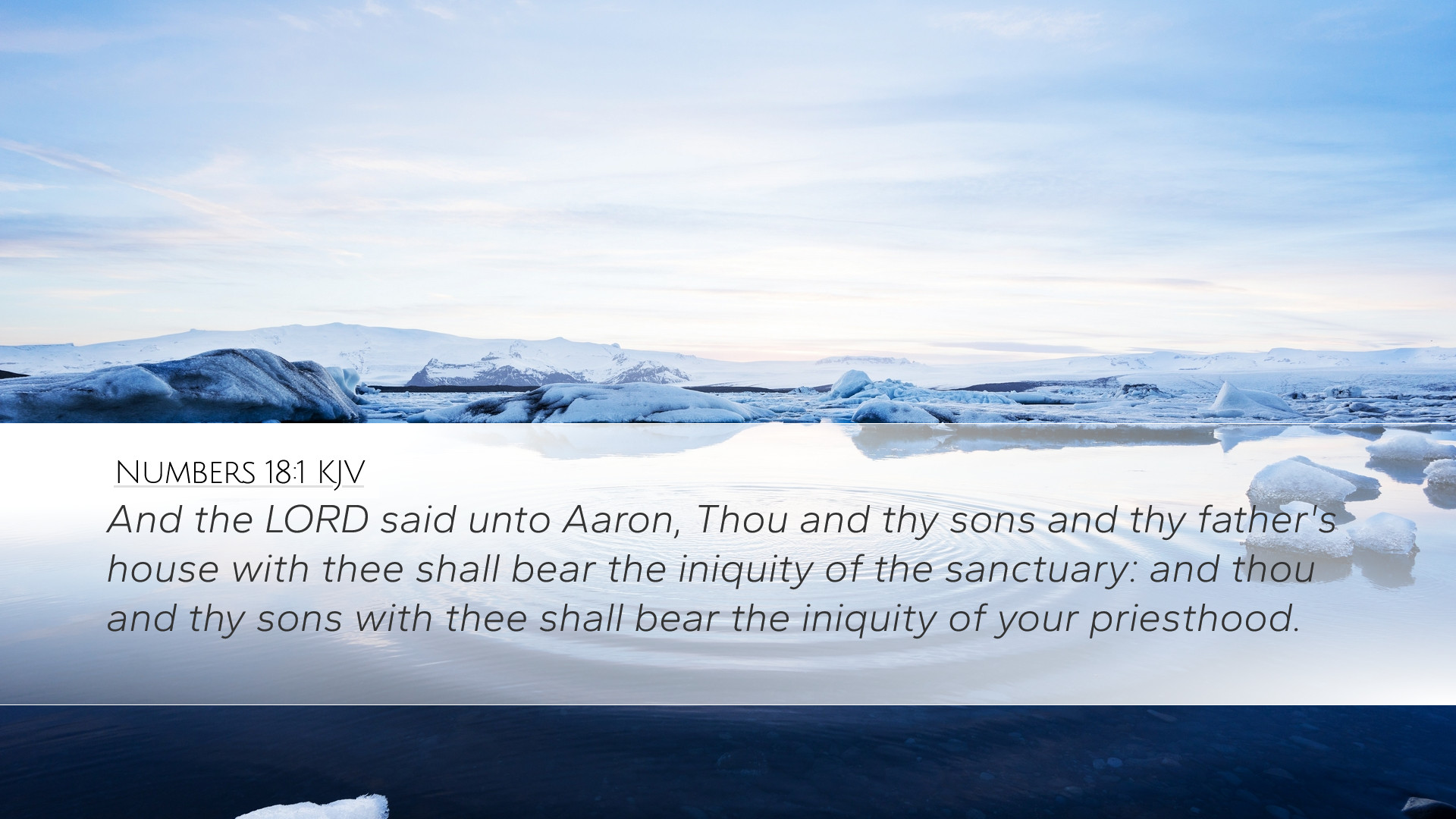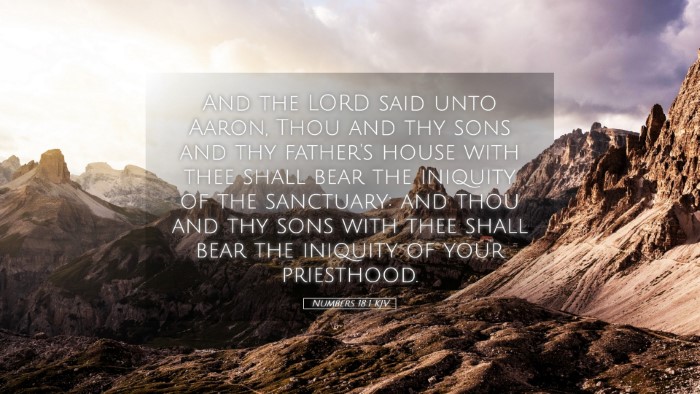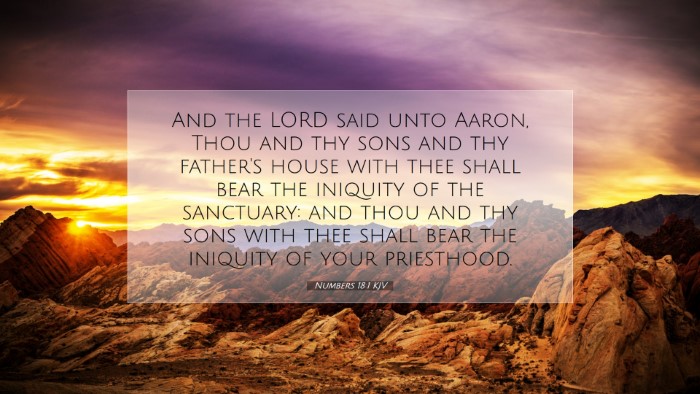Commentary on Numbers 18:1
Numbers 18:1 states: "And the LORD said unto Aaron, Thou and thy sons and thy father's house with thee shall bear the iniquity of the sanctuary: and thou and thy sons with thee shall bear the iniquity of your priesthood."
Introduction
This verse is pivotal within the context of the Levitical priesthood, describing the profound responsibilities and the spiritual burdens entrusted to Aaron and his descendants. Throughout history, various eminent Bible scholars have provided insights into the significance of this verse.
Theological Significance
In this passage, God emphasizes the unique position of Aaron and his lineage. The phrase "bear the iniquity" indicates that not only are they to serve in a sacred capacity, but they also carry a weight of accountability regarding the holiness of the sanctuary and the priestly duties.
Matthew Henry's Insights
Matthew Henry notes that this command shows that God places an essential distinction between the common and holy. The idea of "bearing iniquity" reveals both the privilege and the peril of the priestly role. Priests act as mediators, which means they must maintain purity and be aware of the consequences of others' sinfulness.
Albert Barnes' Commentary
Albert Barnes highlights the seriousness of the task assigned to Aaron and his sons. He points out that their priesthood is not merely a position of honor, but a heavy burden that involves significant spiritual responsibility. The reference to "the iniquity of the sanctuary" suggests a dual accountability: first, for their personal conduct and second, for the sins of the people they represent.
Adam Clarke's Perspective
Adam Clarke emphasizes the implications of the phrase “thy father's house.” He indicates that Aaron's responsibilities extend not only to his immediate family but encompass an entire lineage. This reinforces the notion of heritage in the service of God. Clarke also alludes to how this is reflective of Christ's ultimate sacrifice, who bears the iniquities of all humanity.
The Role of the Priesthood
This text invites deeper exploration into the concept of priesthood in the biblical narrative. The duties of the priests included offering sacrifices, maintaining the sacredness of the sanctuary, and teaching the people the law of God.
Responsibilities Underlined
- Sacred Duties: The priests had to ensure that worship was conducted according to God's specifications.
- Spiritual Accountability: They stood in the gap for the people, which necessitated personal holiness and integrity.
- Leadership and Instruction: Praying for the people and guiding them through the complexities of following God's commands.
Implications for Contemporary Readers
For pastors and spiritual leaders today, Numbers 18:1 serves as a reminder of the weighty responsibilities associated with spiritual leadership. The duality of privilege and burden exists within ministry, pushing leaders to maintain moral integrity while also offering intercession for those they serve.
Reflection and Application
- Recognizing Responsibility: Leaders should embrace their role with humility, acknowledging the iniquities they bear.
- Prayerful Intercession: Commitment to pray for the congregation reflects the heart of a true priestly leader.
- Holiness in Service: Living a life of purity and holiness becomes a cornerstone for effective ministry.
Conclusion
In conclusion, Numbers 18:1 serves as a significant theological text that provides insights into the nature of priesthood both in the Old Testament and its foreshadowing of Christ's ultimate priestly work. Understanding the depth of accountability that comes with spiritual authority invites modern-day leaders to a high standard of personal and communal holiness.


